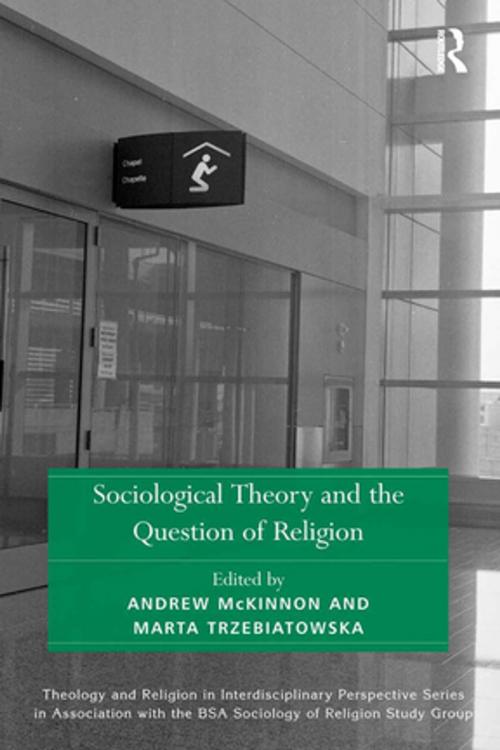Sociological Theory and the Question of Religion
Nonfiction, Religion & Spirituality, Theology, Social & Cultural Studies, Social Science, Sociology| Author: | ISBN: | 9781317053019 | |
| Publisher: | Taylor and Francis | Publication: | April 1, 2016 |
| Imprint: | Routledge | Language: | English |
| Author: | |
| ISBN: | 9781317053019 |
| Publisher: | Taylor and Francis |
| Publication: | April 1, 2016 |
| Imprint: | Routledge |
| Language: | English |
Religion lies near the heart of the classical sociological tradition, yet it no longer occupies the same place within the contemporary sociological enterprise. This relative absence has left sociology under-prepared for thinking about religion’s continuing importance in new issues, movements, and events in the twenty-first century. This book seeks to address this lacunae by offering a variety of theoretical perspectives on the study of religion that bridge the gap between mainstream concerns of sociologists and the sociology of religion. Following an assessment of the current state of the field, the authors develop an emerging critical perspective within the sociology of religion with particular focus on the importance of historical background. Re-assessing the themes of aesthetics, listening and different degrees of spiritual self-discipline, the authors draw on ethnographic studies of religious involvement in Norway and the UK. They highlight the importance of power in the sociology of religion with help from Pierre Bourdieu, Marx and Critical Discourse Analysis. This book points to emerging currents in the field and offers a productive and lively way forward, not just for sociological theory of religion, but for the sociology of religion more generally.
Religion lies near the heart of the classical sociological tradition, yet it no longer occupies the same place within the contemporary sociological enterprise. This relative absence has left sociology under-prepared for thinking about religion’s continuing importance in new issues, movements, and events in the twenty-first century. This book seeks to address this lacunae by offering a variety of theoretical perspectives on the study of religion that bridge the gap between mainstream concerns of sociologists and the sociology of religion. Following an assessment of the current state of the field, the authors develop an emerging critical perspective within the sociology of religion with particular focus on the importance of historical background. Re-assessing the themes of aesthetics, listening and different degrees of spiritual self-discipline, the authors draw on ethnographic studies of religious involvement in Norway and the UK. They highlight the importance of power in the sociology of religion with help from Pierre Bourdieu, Marx and Critical Discourse Analysis. This book points to emerging currents in the field and offers a productive and lively way forward, not just for sociological theory of religion, but for the sociology of religion more generally.















